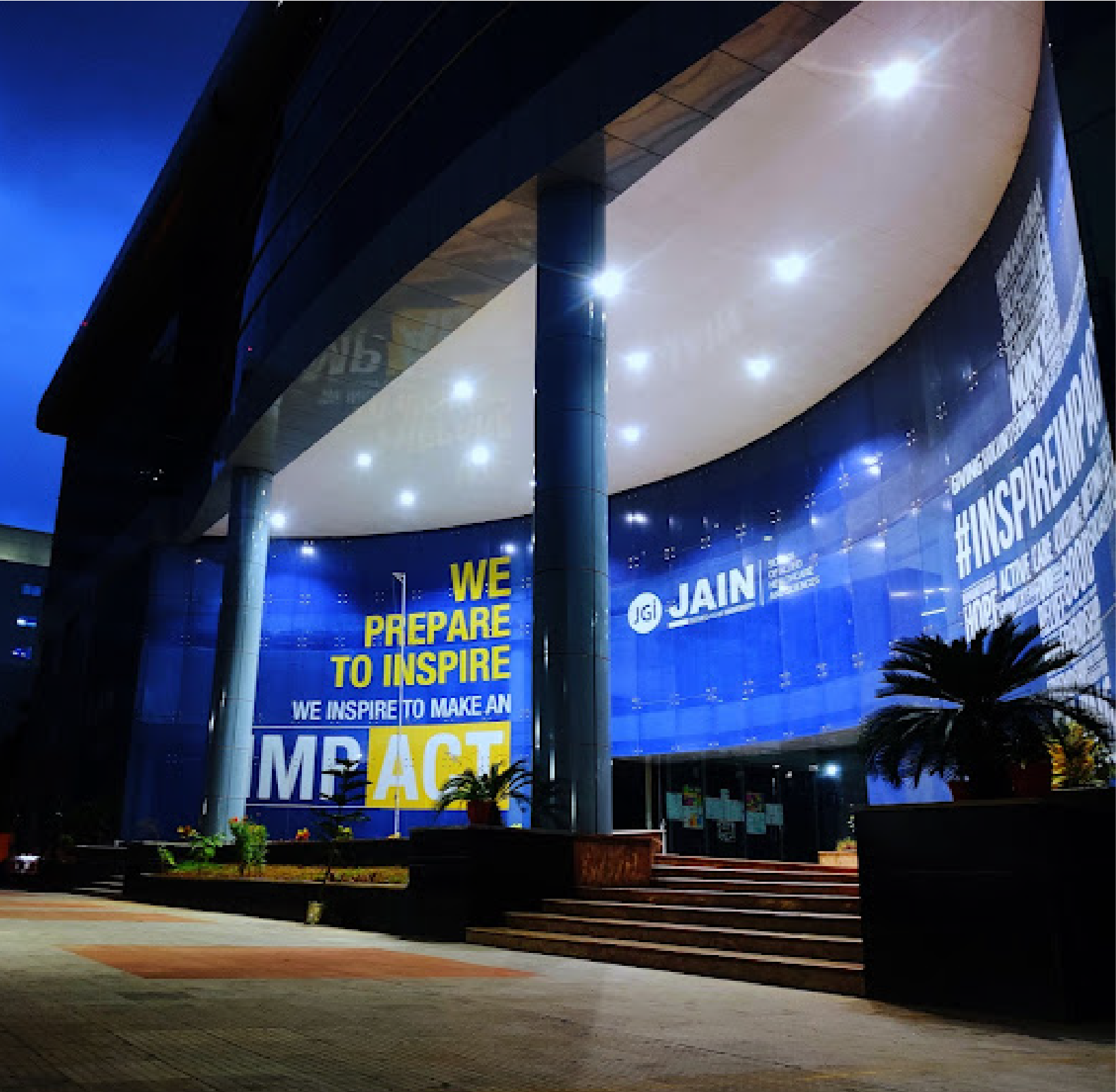Eligibility for B.Sc Medical Imaging Technology:
The minimum qualification for BSc Medical Lab Technology is a minimum of 50% in the 10+2 examination from PUC/ICSE/CBS/A Level/US 12th Grade or an equivalent board. With Physics, Chemistry, and Biology as mandatory subjects, along with a passing grade in English. Alternatively, candidates with an IB qualification should have completed a minimum of 24 credits.
Contact us:
Phone Number: 9606978661, 6366828477
Email : sahs@jainuniversity.ac.in
Curriculum Structure:
The curriculum of the B.Sc in Medical Imaging Technology course seamlessly blends theoretical knowledge with hands-on practical training, ensuring students acquire both a solid understanding of underlying principles and the technical skills needed for proficient operation of imaging equipment.
| Semester |
Name of the subject
|
| Semester 1
|
- Anatomy -1
- Physiology -1
- Lab anatomy & Physiology
- Radiographic Techniques-I
- Basic Physics & Medical Physics-1
- English-I
- Computer applications
|
| Semester 2
|
- Anatomy -II
- Physiology -II
- Radiographic techniques-II
- Basic physics & Medical physics-
- English - II
- Legal aspects of health care
|
| Semester 3
|
- Clinical radiography positioning -I
- Contrast and special radiography procedure -II
- Radiation biology & Radiation safety-basic
- Communicative english
- Healthcare administration
|
| Semester 4
|
- Clinical radiography positioning -ii
- Contrast and special radiography procedure - II
- Nuclear medicine imaging fundamentals
- Indian constitution
|
| Semester 5
|
- Ultrasound and Interventional radiology
- Care of patients in diagnostic radiology
- Practical-ultrasound and interventional radiology
- Quality assurance in diagnostic radiology
- Practical-quality assurance in diagnostic radiology
|
| Semester 6
|
- Recent trends in radiology
- Computer application and imaging processing in radiology
- Practical-recent trends in radiology
- Radiation protection and radiation safety-advance
- Darkroom techniques and organising and managing in diagnostic radiology
|
| Semester 7 & 8
|
- Internship
- Project centric learning (PCL) and Mind management and human values (MMHV)
also provided as add-on courses.
|
Studies after B.Sc Medical Imaging Technology:
After completing a B.Sc in Medical Imaging Technology, individuals have various further study options to enhance their skills and knowledge in the field. Some popular choices include:
Master's in Medical Imaging Technology (MSc MIT):
A postgraduate degree that allows for specialisation in areas like advanced imaging techniques, radiography, and diagnostic imaging.
Postgraduate Diploma in Medical Imaging:
An intensive program focused on specific aspects of medical imaging, providing advanced training and specialisation.
Master's in Radiography and Imaging Sciences:
A comprehensive postgraduate program that delves deeper into radiography techniques, research methodologies, and advanced imaging technologies.
MBA in Healthcare Management:
For those interested in the managerial and administrative aspects of medical imaging facilities, combining business skills with healthcare knowledge.
Ph.D. in Medical Imaging:
Ideal for individuals interested in research and academia, a Ph.D. program allows for in-depth exploration of imaging technologies, innovation, and contributing to the field's scientific knowledge.
Specialized Certification Courses:
Pursue short-term certification courses in areas such as nuclear medicine, ultrasound technology, or magnetic resonance imaging (MRI) to gain expertise in specific modalities.
Clinical Training Programs:
Engage in clinical training programs to gain hands-on experience and specialization in a particular imaging technology or procedure.
Professional Development Courses:
Attend workshops, conferences, and seminars to stay updated on the latest advancements in medical imaging technology and enhance professional skills.
With a strong foundation from a BSc in Medical Imaging Technology, graduates can seamlessly transition into advanced studies, shaping their careers and contributing to the evolution of medical imaging. Exploring these further study options allows BSc Medical Imaging Technology graduates to not only deepen their understanding of the field but also to specialise in specific areas, opening up diverse career opportunities in healthcare and diagnostic imaging.
Career Enhancement Programmes:
B.Sc Medical Imaging Technology graduates can explore various career enhancement programs to further specialise and advance in their careers. Some options include:
Advanced Imaging Techniques Courses:Specialised courses in advanced imaging modalities such as magnetic resonance imaging (MRI), computed tomography (CT), or interventional radiology can enhance skills and knowledge.
Certification in Radiology Management: For those interested in leadership roles, a certification program in radiology management can provide skills in managing imaging departments and healthcare facilities.
Radiation Therapy Certification: This program focuses on the use of radiation for therapeutic purposes, expanding career opportunities in radiation oncology.
PACS (Picture Archiving and Communication System) Training: Learn about the management and interpretation of digital images in healthcare settings, enhancing proficiency in the use of modern imaging technology.
Advanced Certificate in Medical Sonography:For those interested in ultrasound, this program offers advanced training in diagnostic medical sonography, covering specialties like abdominal, obstetrics, and gynaecology.
Healthcare Informatics Certification:Explore the intersection of healthcare and technology, gaining skills in health information management and digital healthcare systems.
Research Methodology and Clinical Trials: Individuals interested in research can opt for courses in research methodology and clinical trials to contribute to advancements in medical imaging.
Continuing Education in Radiography: Stay updated with the latest advancements in radiography through continuous education programs offered by professional organisations.
These career enhancement programs provide opportunities to specialise, stay current with industry trends, and open doors to leadership roles within the field of medical imaging.
Career Progression after pursuing B.Sc Medical Imaging Technology:
| Duration |
Roles and responsibilities
| Salary |
| 0-3 years
|
Clinical Intern/Assistant,
Entry-Level Counselor
|
₹20,000 to ₹40,000 per month.
|
| 3-5 years
|
Counsellor,
Junior Therapist
|
₹40,000 to ₹60,000 per month
|
| 5-10 years
|
Senior Therapist,Clinical Supervisor
|
₹60,000 to ₹80,000 per month.
|
| 10 years and beyond
|
Director of Counseling Services, Senior Psychologist
|
₹80,000 to ₹1,50,000+ per month
|
Please Note:As individuals gain experience and expertise in Medical Imaging Technology, they may take on more specialised roles, managerial positions, or move into education and research. Salaries can significantly increase with advanced certifications, additional qualifications, and leadership responsibilities.
Salaries can vary based on prevailing market dynamics and individual skill levels.


